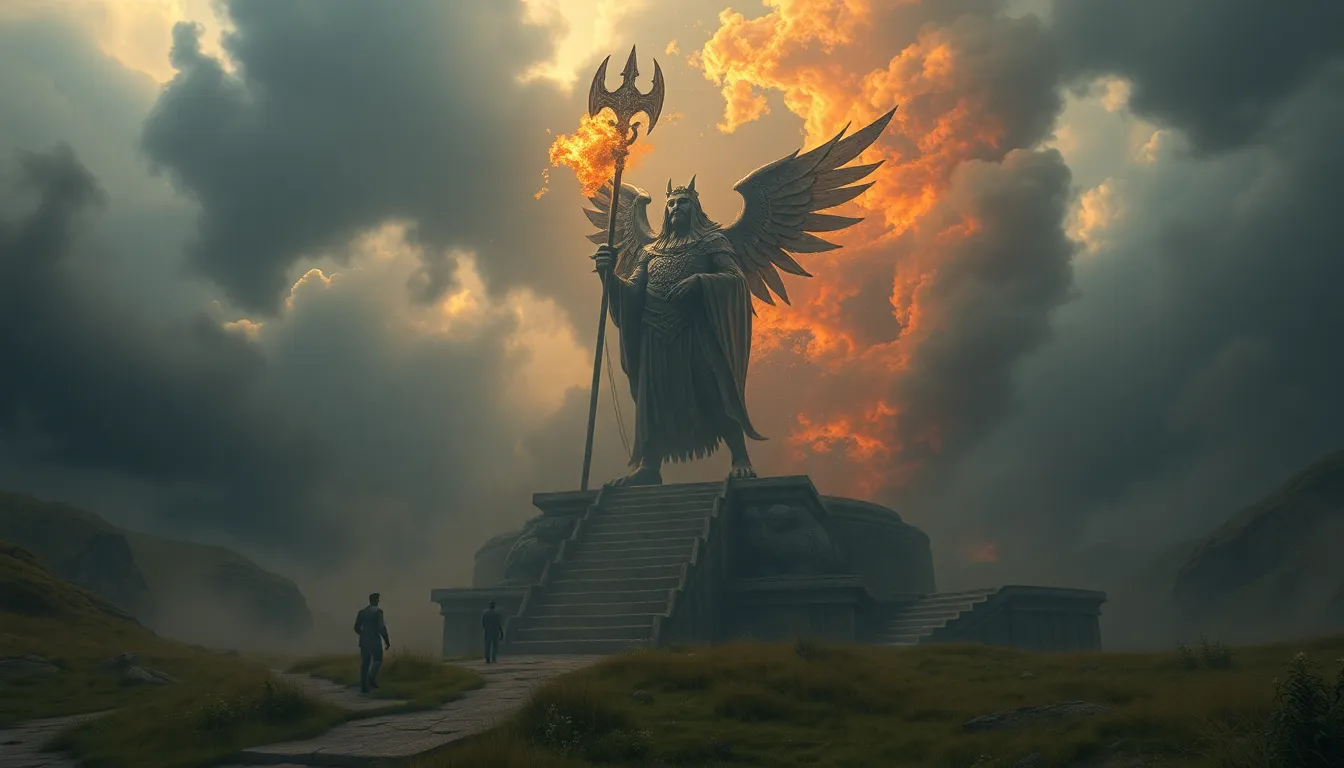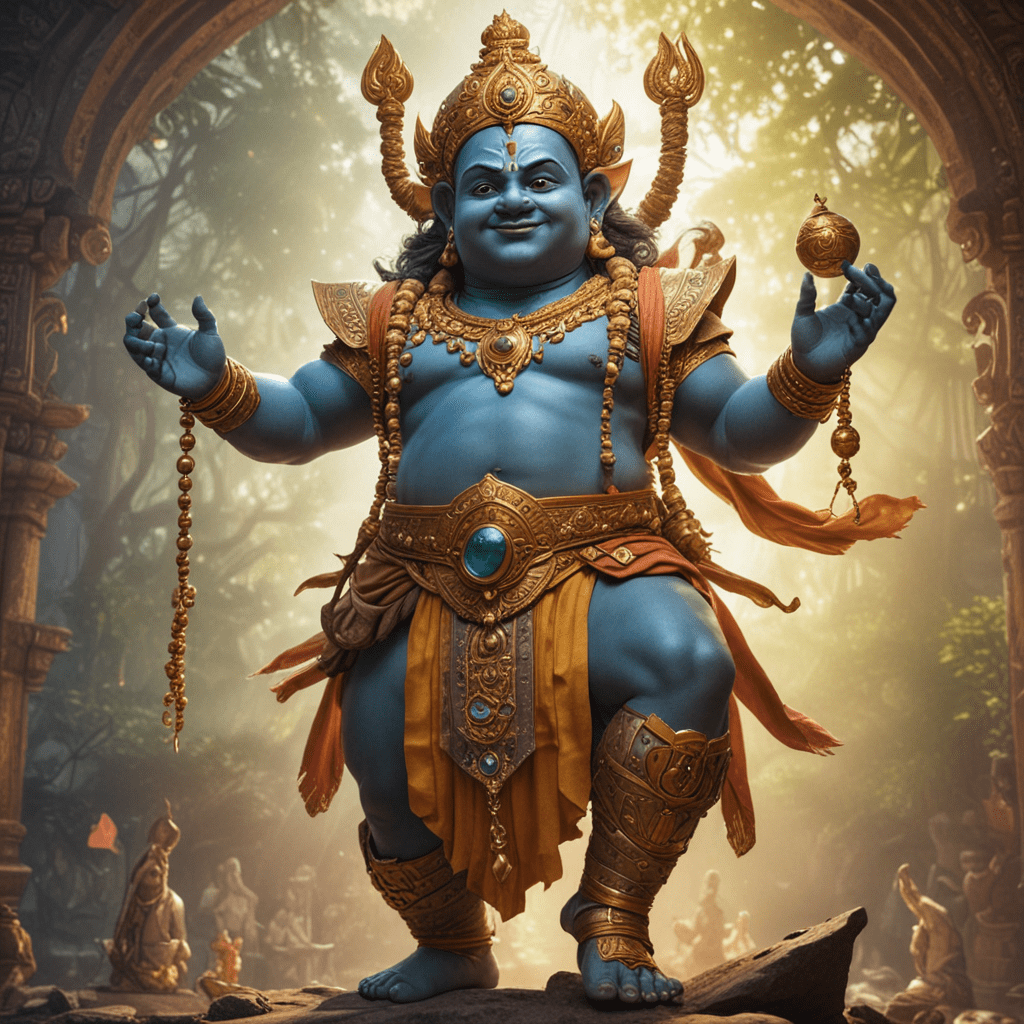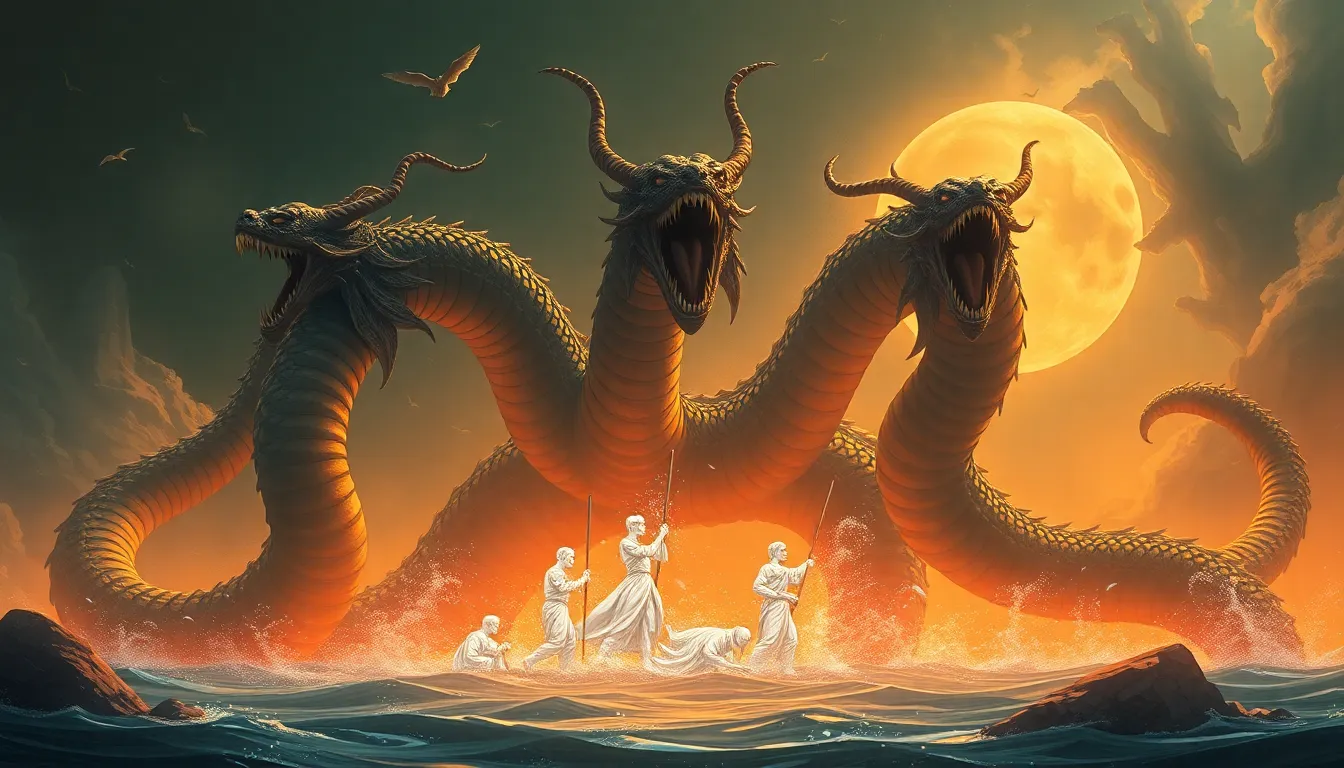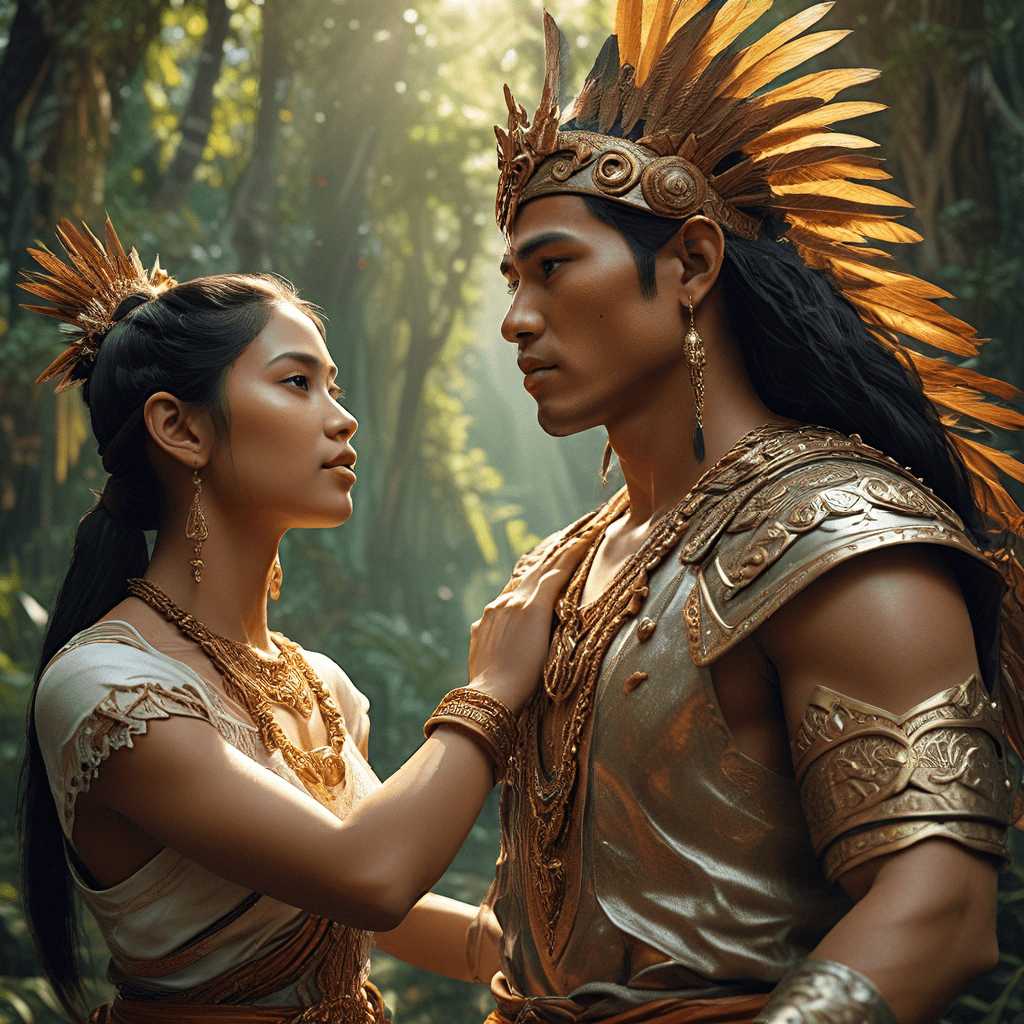The Power of Creation: Myths That Shaped Civilizations
I. Introduction
Myths have been an integral part of human societies throughout history, serving as foundational narratives that explain the origins of the world, humanity, and cultural practices. They are more than mere stories; they encapsulate the beliefs, values, and identity of a community. Among these, creation myths hold a special significance as they address profound questions about existence and the nature of reality.
This article aims to explore the impact of creation myths on civilizations, highlighting their roles in shaping cultural identities, governance, and social structures. By delving into various cultural narratives, we can understand how these myths provide meaning and cohesion to societies across the globe.
II. The Concept of Creation in Mythology
Creation myths often share common themes that resonate across diverse cultures. These themes include:
- Chaos and order: Many myths start with chaos, which is then transformed into a structured universe.
- Divine intervention: Gods or supernatural beings often play a crucial role in the act of creation.
- The emergence of life: Myths frequently explain how various life forms came into existence.
- The moral framework: Creation stories often establish the moral and ethical codes of a society.
The relationship between creation myths and cultural identity is profound. These narratives help define a community’s values, beliefs, and practices. They serve as a basis for rituals, traditions, and communal activities, reinforcing a sense of belonging among members of the society.
Psychologically, creation myths fulfill essential social functions. They provide comfort in the face of existential questions, offer explanations for natural phenomena, and foster a shared identity. In times of crisis, these myths can also serve as a rallying point for communities, reinforcing unity and resilience.
III. The Role of Creation Myths in Ancient Civilizations
In ancient civilizations, creation myths were often intertwined with governance and societal norms. For instance, in Mesopotamia, the Enuma Elish details the creation of the world through the battle of gods, establishing order from chaos. This myth not only served a religious purpose but also legitimized the authority of kings, who were often seen as divine representatives on Earth.
Similarly, Egyptian creation myths, particularly the story of Atum and the Heliopolitan Cosmogony, explain how the universe was created from the primordial waters of chaos. Atum’s emergence from these waters symbolizes the establishment of order, reflecting the values of the Egyptian state and its reverence for the divine.
The impact of these myths on governance and society cannot be overstated. They helped shape laws, social hierarchies, and religious practices, reinforcing the connection between the divine and the earthly realms.
IV. Creation Myths in Indigenous Cultures
Indigenous cultures around the world often rely on oral traditions to convey their creation stories. These narratives are not just tales; they are essential to the cultural fabric and identity of the community. For example:
- Native American Creation Myths: Many tribes have unique creation stories that explain the origins of the Earth, humanity, and the interconnectedness of all living beings.
- Aboriginal Australian Myths: The Dreamtime stories articulate the creation of the land and its inhabitants, emphasizing the spiritual connection between people and nature.
- Māori Creation Myths: In Māori culture, the story of Ranginui (the Sky Father) and Papatūānuku (the Earth Mother) illustrates the origins of the world and the importance of familial ties.
These myths foster community and ecological stewardship, instilling a sense of responsibility towards the environment and emphasizing the interdependence of all life forms.
V. The Influence of Creation Myths on Religion and Philosophy
Creation myths are deeply intertwined with religious beliefs, often serving as the foundation for spiritual practices and moral teachings. They provide a framework for understanding the universe and humanity’s place within it.
A comparative analysis of creation narratives in major world religions reveals both similarities and differences. For instance:
- Judeo-Christian Tradition: The Book of Genesis describes a linear creation process, emphasizing a singular God who creates the world in six days.
- Hinduism: The creation narrative in the Rigveda presents a cyclical view of the universe, wherein creation and destruction are interconnected.
- Buddhism: While not focused on a creator deity, Buddhist teachings explore the concept of dependent origination, explaining how existence comes into being through interconnected causes.
The philosophical implications of these myths extend to questions of morality, existence, and the nature of humanity. They challenge individuals to reflect on their values and responsibilities in the world.
VI. Creation Myths in Literature and Art
Creation myths have inspired artistic expression across cultures, influencing literature, visual arts, and performance. Notable literary works influenced by creation narratives include:
- Paradise Lost by John Milton: A retelling of the biblical creation story, exploring themes of free will and redemption.
- The Epic of Gilgamesh: An ancient Mesopotamian poem that includes creation themes intertwined with human mortality.
Visual arts also play a crucial role in interpreting and preserving creation myths. Artists use symbolism, color, and form to convey the essence of these narratives, enabling future generations to connect with their cultural heritage.
VII. The Evolution of Creation Myths in the Modern Era
Creation myths have not remained static; they have evolved and adapted to contemporary society. Many ancient myths are reinterpreted in modern contexts, finding new meaning and relevance.
In popular culture, creation myths appear in movies, books, and media, often reimagined to address modern existential questions. For instance:
- Movies: Films like The Matrix and Avatar explore themes of creation, existence, and the relationship between humanity and nature.
- Books: Contemporary literature often weaves creation narratives into its plots, reflecting on the human experience and our origins.
This evolution highlights the enduring relevance of myths in addressing contemporary issues, reminding us of the timeless nature of these stories.
VIII. The Power of Creation Myths in Building National Identity
Creation myths play a significant role in building national identity and fostering cultural pride. They often contribute to nationalism by providing a shared narrative that unites people.
Case studies illustrate this phenomenon:
- The United States: The myth of the American Dream serves as a modern creation narrative that promotes ideals of freedom and opportunity.
- India: Hindu creation myths underscore the country’s cultural heritage and unity amidst diversity.
The impact of these narratives on social cohesion is profound, as they can both unite and divide populations, influencing political discourse and community relations.
IX. Critiques and Controversies Surrounding Creation Myths
Despite their significance, creation myths are not without critiques and controversies. Debates about their interpretation can often lead to misunderstandings and cultural appropriation.
One major point of contention is the clash between science and mythology, particularly in discussions about creation versus evolution. This tension raises questions about the nature of knowledge and belief.
Furthermore, cultural appropriation and the misrepresentation of indigenous myths can lead to the commodification of sacred narratives, stripping them of their original context and meaning.
X. Conclusion
Creation myths wield immense power in shaping civilizations, influencing cultural identity, governance, and social values. They provide a lens through which we can understand our origins, our place in the universe, and our responsibilities towards one another and the environment.
As we navigate the complexities of modern life, the enduring relevance of these myths invites reflection on our beliefs, values, and the narratives that bind us together. Whether through ancient stories or contemporary reinterpretations, the power of creation myths continues to resonate, reminding us of the shared human experience across time and space.



